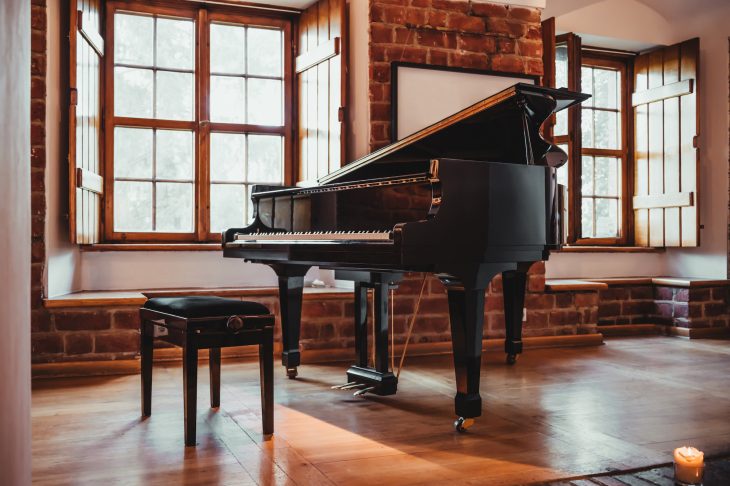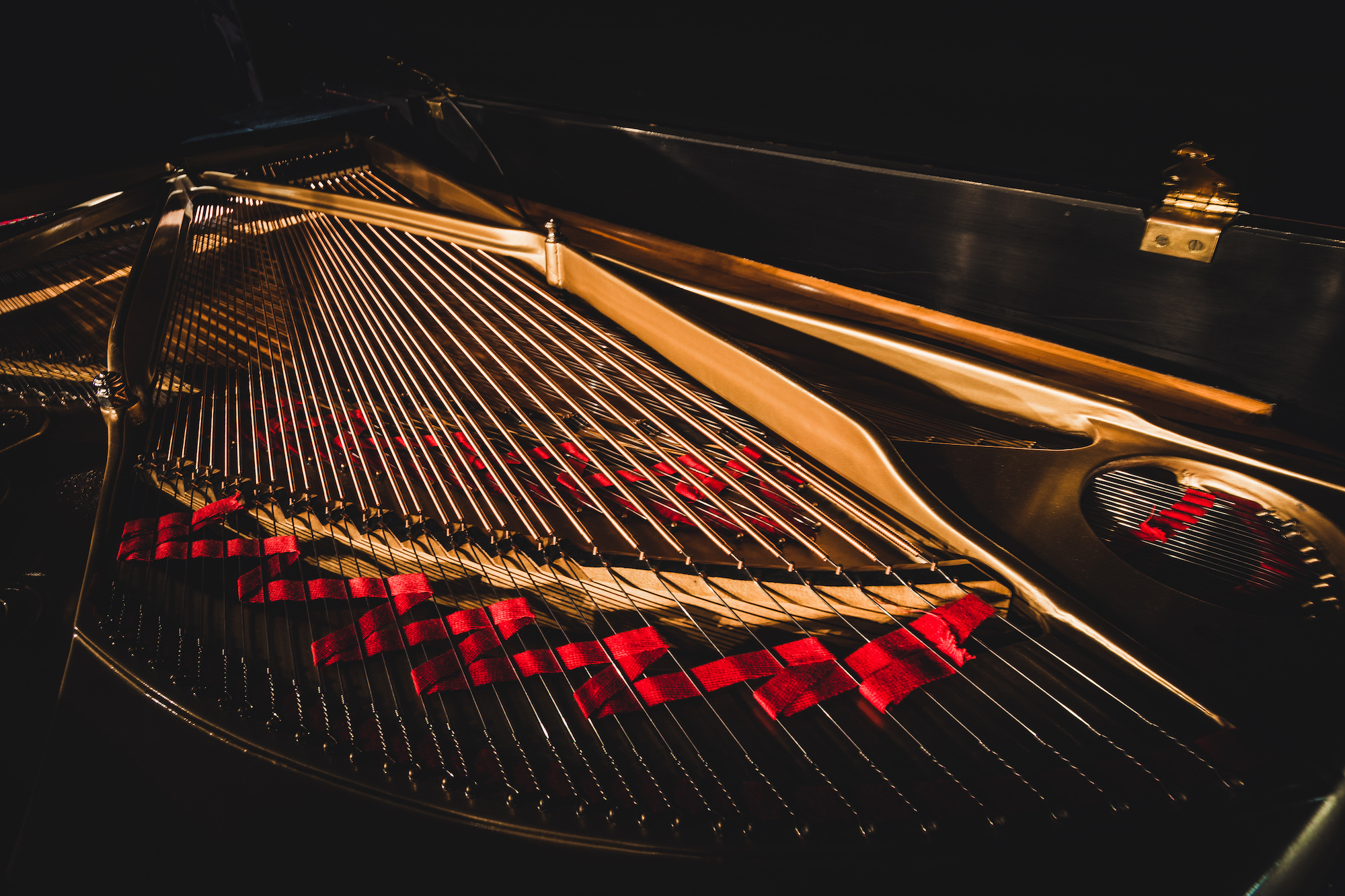
Did you know that if arranged correctly, 88 piano keys can play more than 10 million melodies? Learning the secrets of this complex musical instrument doesn’t have to be overwhelming—here, we will explore 19 essential facts about pianos. This comprehensive guide includes information from their long and varied history to modern-day care and maintenance advice. Whether you’re a novice looking for an overview or a seasoned musician wanting to brush up on your knowledge, these must-know piano facts are sure to delight and inform!
The Piano’s Full Name is “Pianoforte”
The term ‘piano’ is actually an abbreviation. The full name of the instrument is “pianoforte,” derived from the Italian words ‘piano’ and ‘forte’, meaning ‘soft’ and ‘loud’ respectively. This name reflects the piano’s ability to produce sounds with varying volumes depending on the force with which the keys are struck.
The Piano Dates Back to the Early 18th Century
The piano was invented by Bartolomeo Cristofori in Italy around the year 1700. This innovative instrument was a significant development in the history of music because it allowed for a wider range of musical expression compared to its predecessors.
A Piano Has Over 200 Strings
A standard piano is equipped with 230 strings made of high-quality steel. These strings are struck by hammers to produce sound. A piano’s strings can withstand a total tension of about 20 tons!
Pianos Come in Various Sizes and Shapes
There are several types of pianos, including grand pianos, upright pianos, and digital pianos. Grand pianos, which are the largest type, can reach up to 9 feet in length, while upright pianos are more compact, making them suitable for smaller spaces.
The Piano has an Extensive Range
A standard piano has 88 keys, including 52 white keys and 36 black keys. This gives it a range of seven octaves plus a minor third, from A0 to C8 – wider than any other instrument in the orchestra.
The Piano is a Percussion and Stringed Instrument
The piano is categorized as both a stringed and a percussion instrument. It’s a stringed instrument because it produces sound through vibrating strings, and it’s a percussion instrument because the strings are struck by hammers.

The Largest Piano in the World is Over 5 Meters Long
The largest piano ever built is the “Klavins-Piano Model 370i”. Designed by David Klavins, it stands a whopping 5.7 meters tall. This enormous piano is situated in Latvia and is often used for performances and recordings.
The World’s Most Expensive Piano Sold for Millions
The Crystal Piano, designed by Canadian manufacturer Heintzman Pianos, holds the record for being the most expensive piano ever sold. Purchased for a staggering $3.22 million at a 2008 auction, this piano is made entirely of crystal and is as much a work of art as it is a musical instrument.
Piano Playing Improves Cognitive Skills
Research has shown that playing the piano can boost cognitive skills, improve memory, and enhance multitasking abilities. This is because playing the piano requires coordination between the hands and the eyes, stimulates the brain, and fosters creativity.
The Piano Has Inspired a World-renowned Competition
The International Chopin Piano Competition, held in Warsaw, Poland, is one of the most prestigious piano competitions in the world. Established in 1927, this competition attracts talented pianists from around the globe and has launched the careers of many renowned musicians.
The Piano is a Solo and Accompanying Instrument
The piano’s versatility allows it to shine in solo performances and also to accompany other instruments or singers. From concertos to chamber music, the piano’s rich and varied sound makes it a favorite in numerous musical genres.
Pianos Require Regular Tuning
To maintain the quality of sound, pianos need regular tuning. Changes in humidity and temperature, as well as the tension of the strings, can cause a piano to go out of tune. It’s recommended to tune a piano at least twice a year, though professional pianists may do so more frequently.

The Piano has Evolved Over Time
The modern piano has evolved significantly from its early 18th-century design. Over the centuries, improvements in technology and changes in musical tastes have led to enhancements in the piano’s range, power, and sound quality.
Some Pianos Have More Than 88 Keys
While most pianos have 88 keys, some models have been built with extra keys. For example, the Bösendorfer Imperial Grand has 97 keys, extending the bass range, while the Stuart and Sons pianos can have up to 108 keys, providing an extended range in both bass and treble.
The World Record for Fastest Piano Playing is Astounding
The current world record for fastest piano playing is held by Hungarian pianist Bence Peter, who hit 765 keys in just 60 seconds. This remarkable feat showcases the skill and dexterity required to master the piano.
There are Hybrid Pianos
Hybrid pianos, a blend of acoustic and digital pianos, have been introduced to the market. These pianos combine the touch and action of an acoustic piano with the versatility of digital sound technology, offering the best of both worlds.
Famous Composers Had Their Favorite Pianos
Many great composers had a favorite piano brand. For example, Frédéric Chopin preferred Pleyel pianos, while Ludwig van Beethoven favored the pianos made by the Broadwood company.
The Piano is Known as the “King of Instruments”
The piano has been dubbed the “King of Instruments” due to its wide range, versatility, and the rich diversity of music composed for it. Its regal sound and the ability to play melody and accompaniment simultaneously make it a unique and powerful instrument.
The Piano has Inspired a World of Innovation
From player pianos to synthesizers and from digital pianos to music software, the piano has inspired countless innovations in music technology. Its impact extends far beyond the realm of acoustic music, shaping the soundscapes of modern music genres.
Conclusion
Whether you love the grandeur of a large concert hall or the intimacy of a small room, pianos can provide an unmatched level of emotion and expression. It is with both admiration and understanding that we look upon these magnificent instruments—and those who are fortunate enough to play them. Even with the overwhelming challenge of mastering 88 keys, nothing should hold us back from pursuing our dreams and doing what we love. With this guide in hand, we hope you have gained a newfound appreciation for pianos and the stories they can share. As Wolfgang Amadeus Mozart so famously said: “I thank my God for graciously granting me the opportunity of learning to play it.”
Was this page helpful?
Our commitment to delivering trustworthy and engaging content is at the heart of what we do. Each fact on our site is contributed by real users like you, bringing a wealth of diverse insights and information. To ensure the highest standards of accuracy and reliability, our dedicated editors meticulously review each submission. This process guarantees that the facts we share are not only fascinating but also credible. Trust in our commitment to quality and authenticity as you explore and learn with us.
